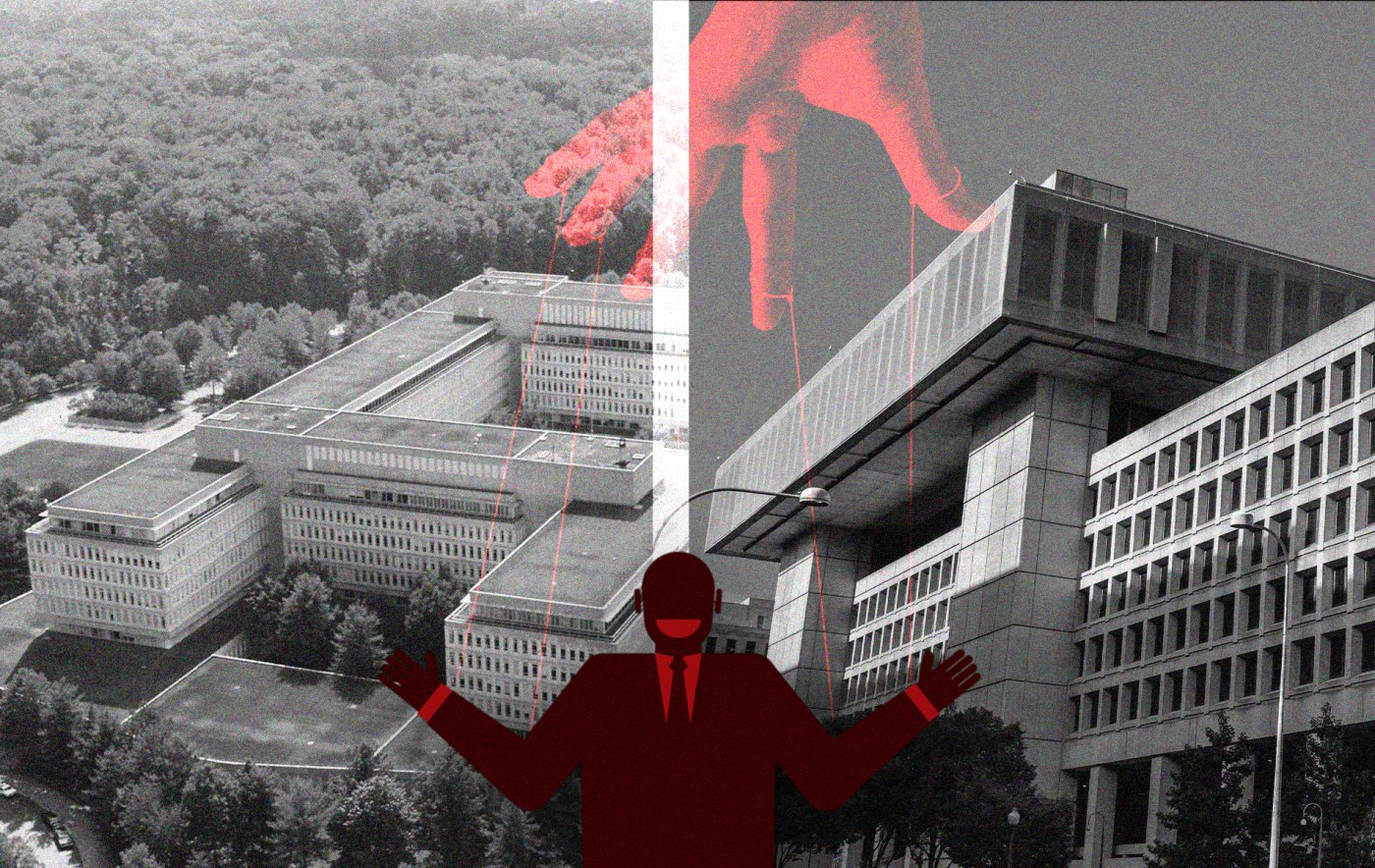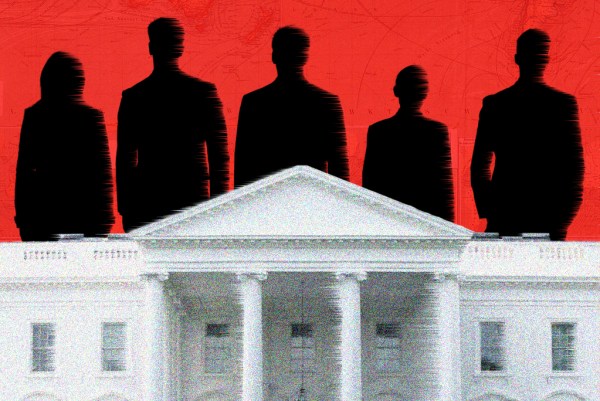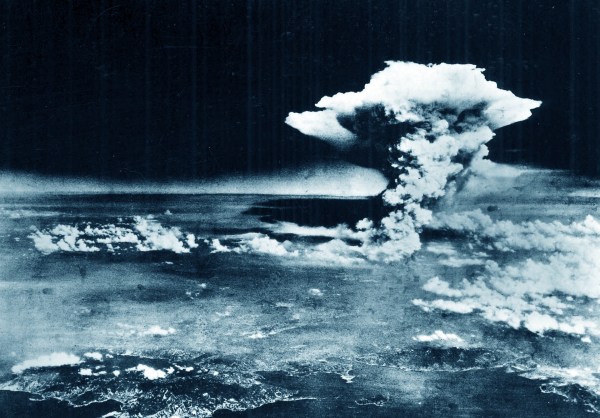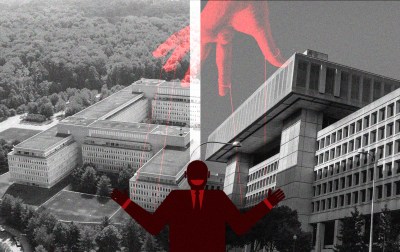It’s become gospel in much of the American right that a liberal “deep state” exists, forming an alternate government that works against Donald Trump and the Republican Party. “Either the deep state destroys America,” Trump declared during his first major rally of his last campaign, “or we destroy the deep state.” This supposed pernicious matrix is spread throughout the press and the federal bureaucracies, though most dangerously embedded in the Central Intelligence Agency, the Federal Bureau of Investigation, and the rest of the Justice Department.
The oft-heard wish among Republicans to move some agencies out of Washington is, in part, a way to break this conspiracy by staffing the government with like-minded souls from red states. For troublesome “elite” bureaucracies that must stay in D.C., the militant right still wants to humble them. The leaked White House plan for State Department reform, which Secretary of State Marco Rubio rejected, aimed to neuter “deep state” pretensions by eliminating the foreign-service exam, which, the document’s authors surely assumed, rewards the schooling and aptitude of folks likely to have strong Democratic sympathies.
Trumpians are conceding something that Reaganites never would have—that the better educated are irretrievably aligned against them. They are also confessing their own managerial inadequacy: No matter how many presidentially appointed “Schedule C” assistant secretaries Trumpians put on top, they can’t, apparently, successfully manage liberals. History actually suggests the opposite: Diplomats have routinely executed hardline foreign policies when guided by talented conservatives. Many Washington liberals looked askance at Elliott Abrams when he was Ronald Reagan’s assistant secretary for Latin American affairs precisely because he was so effective at getting foreign-service officers to execute right-wing policies in Central America. As effective, in a less collegial way, was John Bolton during both Bush presidencies.
The right never spends much time explaining how the “deep state” works. Go to a conservative dinner party in Washington, even among Republicans who loathe Trump, and a rarely challenged assumption—that progressives in government and the liberal mainstream media work in unison against them—usually surfaces. The liberal elites are all educated at similarly minded universities and don’t need much instruction from on high. They instinctively know how to screw Republicans. MAGA true believers, meanwhile, imagine a more organized, insidious opposition—more along the lines of the Comintern, with Barack Obama and his closest associates pulling the strings.
Conservatives certainly aren’t wrong about an adverse cultural milieu in Washington. The capital is a lib-left town. The surrounding suburbs similarly reflect the same oh-so-earnest, Black-Lives-Matter-and-science-is-real culture, which drives most Republicans nuts. The holier-than-thou clubbiness of Washington’s Democratic political, media, and intellectual establishments can get on the nerves of even wet Republicans. Life in D.C. for conservatives is downstream.
But Washington’s left-wing milieu, even within bureaucracies where the majority of their upper echelons probably vote Democratic (the State Department), doesn’t make for a Borg collective. Far from it.
For those of us who have worked in the most opaque part of the “deep state”— Langley—and have had a fair amount of contact with FBI agents, this conspiracy seems wildly exaggerated, if not surreal, and deeply unfair to most officials who have conducted themselves professionally. “Deep state” believers hyperventilate on mundane facts: Government workers tend to vote Democratic; some bureaucracies prove resistant to presidents who advance policies senior bureaucrats don’t like. To which anyone who has had serious government experience should reply, “So what?” Do Trumpians not do Occidental Civilization 101-102? Is Max Weber no longer required reading? When did Republicans start to whine so much about issues that haven’t been central to their successes and failures? Reagan succeeded in office; George W. Bush failed. The mainstream media didn’t decide that outcome.
Before the coming of Trump, depicting the CIA and the FBI as anti-Republican would have been nearly 180 degrees wrong—case officers and G-men were more likely to be sympathetic to Republicans than Democrats. The two institutions might well have been the domains where one would have found the largest numbers of government employees sympathetic to a message highlighting the need for a more muscular, unilateral approach to foreign enemies and illegal immigrants.
“For those of us who have worked in the most opaque part of the ‘deep state’— Langley—and have had a fair amount of contact with FBI agents, this conspiracy seems wildly exaggerated, if not surreal, and deeply unfair to most officials who have conducted themselves professionally.”
Before Trump, the counterintelligence crowd in the bureau was dependably apolitical, in great part because the tasks of tracking foreign intelligence officers and trying to find their American sources and spies have no political orientation. The work isn’t scintillating—a lot of repetitious, detailed paperwork combined with long surveillance runs and occasionally long stakeouts. A former head of FBI counterintelligence once half-joked with me that he liked officers who came from lower-middle class families, went to second-rate colleges, and who looked at such onerous, low-intellect work with joy and ambition. He loved Irish Catholic officers who were a notch above street cops. Odds are that these men and women were among the most Republican of FBI agents. Doors can open more easily if the political players think career officials are philosophically aligned. But that game is bipartisan. And such open affiliations don’t burrow down into bureaucracies, where career ambition and fear strongly encourage neutrality.
Trump’s supporters often dwell on the looseness of the Foreign Intelligence Surveillance Court in granting FBI requests to follow individuals involved in Russiagate. The truth: In recent years, the court, founded in 1978 in the wake of the Church Committee hearings on the U.S. intelligence community, had been a rubber stamp for the bureau. The court’s relationship with the FBI was deferential—it wasn’t, however, political.
The court’s too-trusting disposition actually sprang from the bureau’s and the Justice Department’s earlier obsessive scrutiny of applications for fear of a scandal. The judges’ near-perfect approval rate of FBI/DOJ warrants reflected this obsession by G-men to present damning cases. Conservatives actually went after the bureau for being too punctilious and slow in collecting information for warrants. Bad guys were getting away. Republicans wanted the FBI, Justice, and the surveillance court to be quicker.
The FBI and the judges became less punctilious. Surveillance judges, just like the congressional intelligence-oversight committees, started to identify with and trust the agencies that they ought to routinely challenge. And like all other bureaucracies, the FBI isn’t immune to entropy—once standards drop a little, they inevitably fall further until something pushes back.
And with the investigation surrounding Trump, the bureau was in a devilish, damned-if-you-do, damned-if-you-don’t position. As the president certainly would admit with pride, Washington had never seen anything like him before: a presidential candidate who had long admired Vladimir Putin, had for years sought a way into the hotel business in Moscow, and eagerly sought Russian investment in Trump Inc. Alarm bells should have gone off.
We should all want the FBI able to investigate a political candidate, even a presidential one, for damning foreign ties, let alone the possibility of being a “Manchurian candidate.” The bureau should have clearly seen early, however, that Trump wasn’t a Russian mole or beholden to Putin. Like all intelligence services, the SVR and GRU don’t view erratic, theatrical personalities as good agent material. Even someone with minimal knowledge of Russia, Putin, the Russian intelligence services, and private-intelligence/due-diligence contractors should have known that the Steele dossier was silly. Trump may do things routinely that match dream scenarios for a Russian covert-action program aimed at the United States and our North Atlantic Treaty Organization allies; reverse engineering actions, however, could also damn dovish left-wing politicians who always want to cut military spending.
At the CIA, operatives veer toward the “realist” school of foreign affairs. Although great agents inside tyrannical regimes have usually put themselves into harm’s way for noble reasons (freedom and revenge), espionage at its core revolves around paying people to commit treason. Langley’s case officers obviously don’t have a problem with “America First” and a “transactional” approach to international relations.
If MAGA Republicans understood the nuts and bolts of the CIA, then they wouldn’t see conspiracies so easily. They would adapt to the fact that relatively few folks who have first-rate educations and a desire to live overseas are going to see the world through a MAGA lens. Any sensible, curious, worldly conservative—and for the purpose of this essay let’s define that as anyone who can rapturously appreciate Evelyn Waugh’s Black Mischief and V.S. Naipaul’s A Bend in the River and still want to spend years in Africa—isn’t going to join a CIA that seems inhospitable to people who want to dedicate their lives to examining, even empathizing with, foreigners who may be anti-American.
“The bureau should have clearly seen early, however, that Trump wasn’t a Russian mole or beholden to Putin. Like all intelligence services, the SVR and GRU don’t view erratic, theatrical personalities as good-agent material.”
When I joined the agency in 1985, the directorate of operations had a slight Republican hue; the directorate of intelligence, the analytical wing of the house, had a slight liberal vibe. Most senior analysts just seemed conventional and a bit boring. The collective process of creating the more important intelligence products—the national intelligence estimates—and the hierarchy involved with writing everything else defined the mentality of the directorate. Many of my professors had thought Ronald Reagan was the anti-Christ; I can’t recall a single analyst, from the most lowly to the senior service, dissing Reagan, who was, if we recall, deeply shocking to the Washington foreign policy establishment, the liberal press, and our European allies.
Discerning the politics of senior operatives was even harder. Most of them didn’t socialize much with junior and midlevel staff. Espionage really doesn’t lend itself to political conversations. The CIA is like all other bureaucracies: it’s always better to be politically circumspect, to give the least possible offense wherever possible. And just the daily, mundane work of the clandestine service—recruiting and running agents—circumscribes an officer’s horizons. As a junior-officer classmate, a liberally inclined Harvard graduate, wryly observed: In the operations directorate when someone mentions the word “book,” one’s thoughts immediately go to a recognition signal for a clandestine meeting. CIA dinner parties were dependably, excruciatingly dull in part because no one wanted to talk about politics.
The Reagan administration actually tried a “populist” approach to improve the clandestine service. It diversified incoming junior-officer classes by trying to find people with “aggression” and “street smarts,” even employing ex-New York City taxi drivers and former cops who had never lived abroad, spoke no foreign languages, and had less than demanding college educations. Reagan’s CIA director, William Casey, an Irish Catholic from Queens who ran the Office of Strategic Services—the agency’s WWII forerunner—in Europe, drove this effort. Although Casey didn’t ruminate loudly within Langley, he certainly gave the impression that he found the 1980s CIA a disappointment. Casey’s complaints weren’t political. Institutional gossip didn’t suggest that he believed Langley had too many Ivy League liberals. He just found the institution bureaucratic, lacking vigor and daring. His reform wasn’t, to put it politely, a brilliant success. Finding the right educational-real-world mix for operatives isn’t easy.
In the 1980s, the only folks in Washington who thought the directorate of operations was a roguish outfit were on the far left. And even in that perfervid domain, Langley was usually seen as a bipartisan devil: Democratic and Republican presidents had both used it in the Third World to support dictators and others on the wrong side of history. Liberals did become uncomfortable with the agency in the 1970s and 1980s as they questioned the utility and morality of the Vietnam War and the containment of communism, especially in the ugly struggles in Latin America and Africa. The Church Committee hearings and Director of Central Intelligence William Colby’s openness about a variety of past covert actions—some half-baked, some bizarre, some morally objectionable—certainly eroded Langley’s standing among Democrats. The decline in liberal enthusiasm for the agency may have had an effect on those considering a career in espionage.
Until Trump, the right’s biggest problem with the agency was that it confused patriotism with deference. Republicans—and a lot of Democrats—heaped money on Langley without asking hard, invidious questions about how clandestine human-intelligence collection and covert action really worked.
Trump’s war against the “deep state” may well do—it may have already done—the exact opposite of what the president intended: He has likely made the CIA and the FBI very fond of Democrats, reversing the pro-Republican tilt that began in the late 1960s and, according to officers still serving, continued at least into Trump’s first term. Biting ironies are one of the few things that make Washington fun. Employees inside these two organizations may not appreciate, however, the humor.






Please note that we at The Dispatch hold ourselves, our work, and our commenters to a higher standard than other places on the internet. We welcome comments that foster genuine debate or discussion—including comments critical of us or our work—but responses that include ad hominem attacks on fellow Dispatch members or are intended to stoke fear and anger may be moderated.
With your membership, you only have the ability to comment on The Morning Dispatch articles. Consider upgrading to join the conversation everywhere.